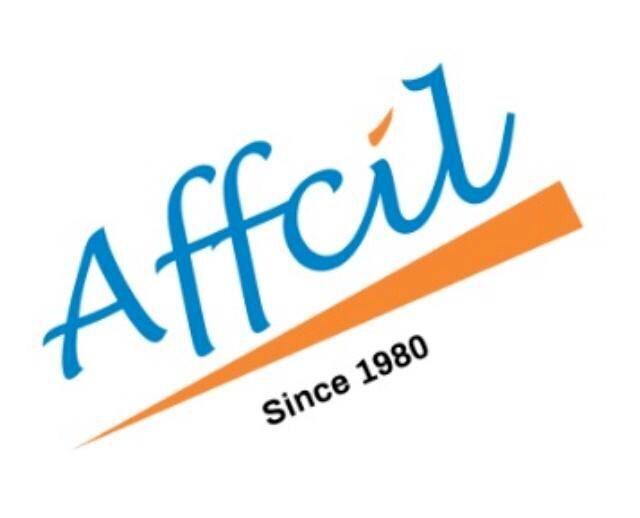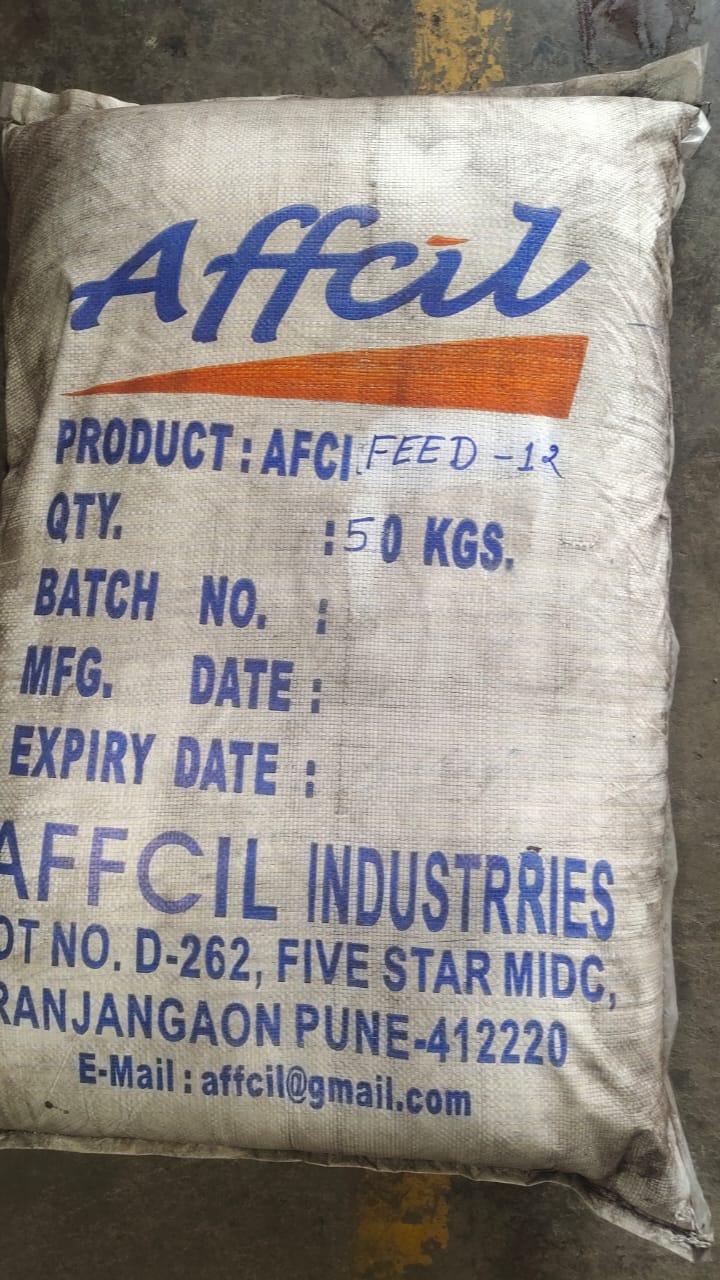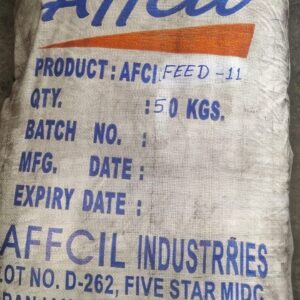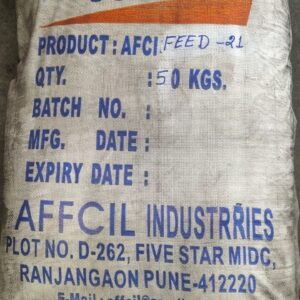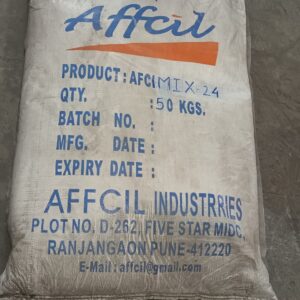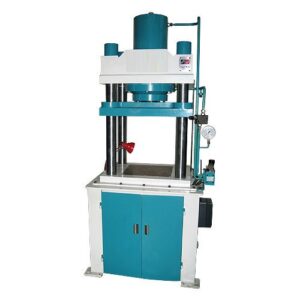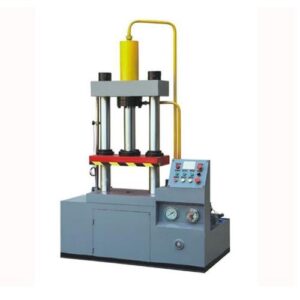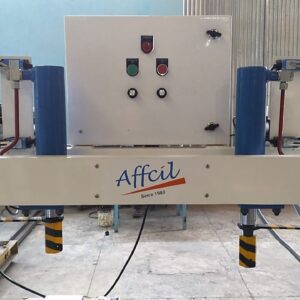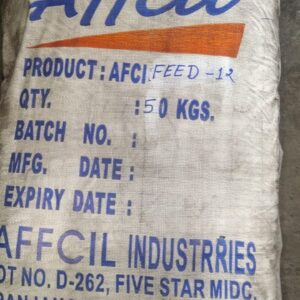Description
GENERAL:
AFCIFEED is a range of exothermic cum insulating compound to minimize the heat losses due to radiation, from the exposed surface of the feeder head & also acts as an insulating barrier, there by increasing efficiency of riser, resulting in improved directional solidification used for ferrous & non – ferrous castings.
INTRODUCTION: prevention of heat loss upwards from the feeder head by use of AFCIFEED hot – top Powder
The rate of cooling of a feeder head can be reduced by insulating its exposed surfaces. On particular feeder head, over 25 minute’s solidification period, it was observed that the heat radiated upwards from the exposed top surfaces was around 30% of all the heat lost from the feeder head. Fortunately, top surface insulation is relatively easy to effect. Iron & steel foundries have for many years adopted the practice of covering feeder heads with sand, refractory oxides, carbonaceous materials & other so called anti – piping compounds. The use of such materials retards the loss of heat upwards so as delay the solidification of a head with the result, the atmospheric pressure in addition to gravity, aids the flow of metal into the solidifying casting. The addition of heat producing exothermic covers to the feeder heads prevents heat loss much more effectively than insulating compounds alone.
What Causes Porosity?
When metal is poured to produce casting, it is at a temperature considerably higher than its melting point. As the liquid metal cools from pouring temperature to the solidifying state at atmospheric temperature, it contracts in volume. The total change of shrinkage is made up of three parts & takes place in three stages as follows: –
- Liquid molten metal shrinkage, which occurs as the liquid metal cools from pouring temperature down to solidifying temperature.
- Shrinkage, which occurs during actual solidification.
- Solid shrinkage or contraction, which occurs as the temperature of the solid casting cools from the solidification temperature to atmospheric temperature.
DESCRIPTION:
Exothermic Feeding: –
AFCIL Hot – Top compounds are heat generating, which is applied to the surface of the still liquid metal in the feeding heads of iron or steel castings. It heats the surface of the feed metal & so considerably delays its freezing & the formation of solid skin. The feed metal is thus kept open & in liquid condition longer.
When the exothermic action of AFCIFFED Hot Top is completed, the burned out material has a strong insulating effect, which reduces heat loss by radiation & convection from the metal.
The combined action of first heating & then insulating the surface of the feed metal results in greatly improved feeding efficiency & assists in the production of sound, pressure tight castings.
SPECIFICATION:
| Sr. No. | Code
No. |
Product | Specification | Use | Characteristics | |
| Parameter | Specification | |||||
| 1.
|
G011 | AFCIFEED – 11 | Chemical Reaction | Vigorous reaction with 10% NAOH Soln. | Hot-Topping
Compound. |
To minimize the heat losses & also Increases feeding Efficiency of riser Resulting in improved directional Solidification. Used for ferrous & non- ferrous casings. |
| 2 | G012 | AFCIFEED – 12 | Chemical Reaction | Vigorous reaction with 10% NAOH Soln. | Anti-Piping Compound | |
| 3 | G021 | AFCIFEED – 21 | Chemical Reaction | Vigorous reaction with 10% NAOH Soln. | Expanded Insulating & Exothermic Compound | |
APPLICATION:
- Pour casting within approximately 25 mm of the top of the riser.
- Place AFCIFEED powder on the top of the riser so as to provide a cover of about 25 mm in depth.
- Allow the exothermic reaction to proceed.
- Top up with more metal if necessary.
ADVANTAGES:
- Keeps the metal in the riser in liquid stage for a considerably longer time, due to Which sound castings free from
Defects are produced.
- Useful particularly where box parts or casting design makes risering difficult.
- Because of better feeding the rejection due to shrinkage defects is reduced.
- Increase in feeding efficiency & yield due to minimum heat loss & heat dissipation.
- Reduction in riser sizes improves the foundry yield through metal saving.
- Drastic reduction in fettling costs.
PACKING – 40 / 50 Kg Polythene lined bag.
